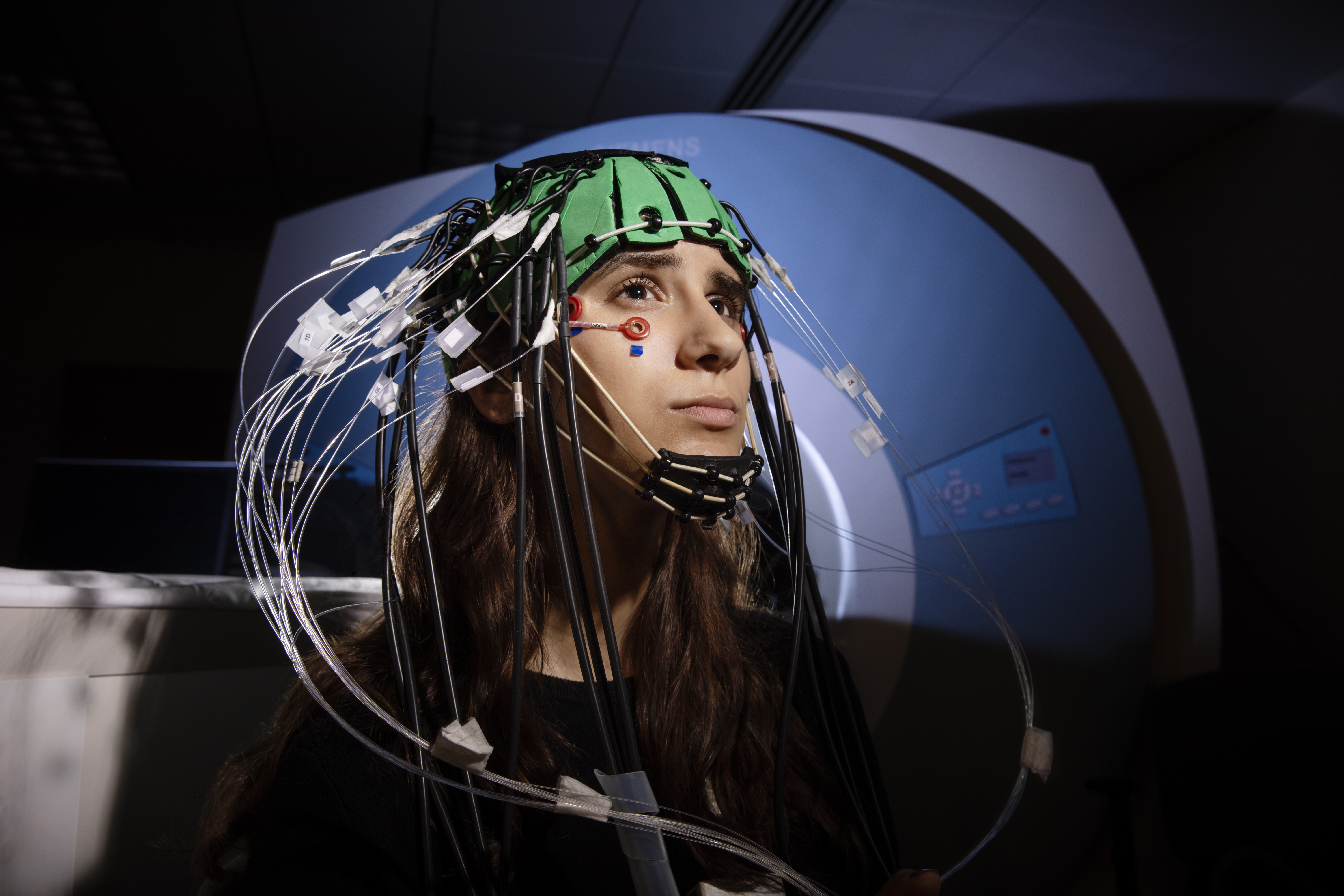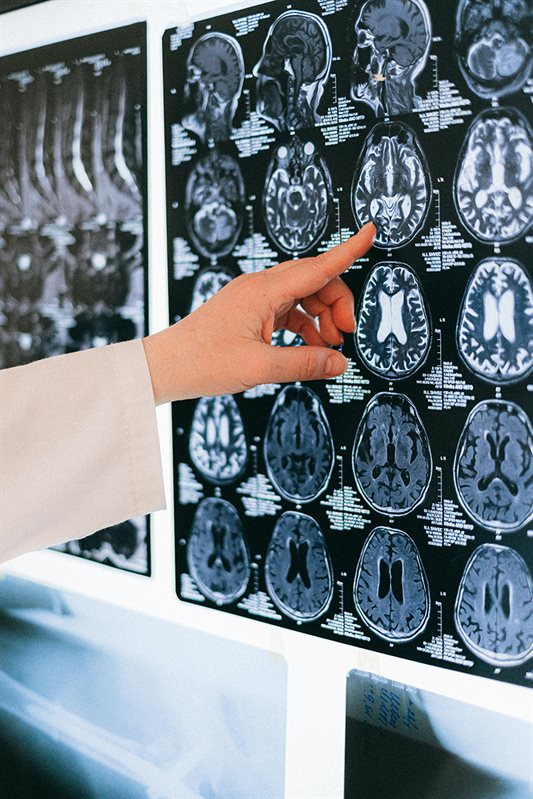Neural Engineering
Neural engineers apply engineering principles to the design of technologies to understand, repair, and enhance the function of the nervous system.
As a neural engineering student, you will receive a rigorous and focused training at the intersection of neuroscience and engineering fundamentals. Upon graduation, you'll contribute to efforts that seek to improve human health. For example, recent advances in neural engineering have:
- restored mobility to individuals with paralysis,
- relieved symptoms of movement disorders,
- reduced chronic pain,
- restored the sense of hearing,
- and enabled noninvasive monitoring of electrical signals from individual neurons in the living brain.
- NE 100—Introduction to Neural Engineering
- CHEM 102/103—General Chemistry I / General Chemistry Lab I
- MCB 150—Molecular & Cellular Basis of Life
- MATH 221—Calculus I
- MATH 231—Calculus II
- PHYS 211—University Physics: Mechanics
- PHYS 212—University Physics: Electricity & Magnetism
- CS 101—Intro Computing: Engrg & Sci
Students should consult with an academic advisor regarding course selection prior to the advanced registration period.
Graduates may work in the following industries:
Neuroprosthetics
Developing devices that can interface with the nervous system to restore lost sensory or motor functions. For example, creating prosthetic limbs that the user's thoughts can control.
Brain-Computer Interfaces (BCIs)
Creating technologies that allow direct communication between the brain and external devices, enabling individuals to control computers, robots or other devices using their brain signals.
Neuroimaging
Advancing techniques to visualize and understand the brain's activity and structure, such as functional magnetic resonance imaging (fMRI) or electroencephalography (EEG).
Neural Stimulation
Designing methods for delivering controlled electrical or chemical signals to specific regions of the brain, which can be used for therapeutic purposes or to study brain function.
Neural Probes
Developing tiny devices that can be inserted into the brain to record or stimulate neural activity, often used in research to understand brain functions and disorders.
Neural Signal Processing
Creating algorithms and tools to analyze and interpret the complex signals generated by the nervous system.
- Ability to design and conduct experiments
- Analytical skills
- Communication skills
- Critical thinking skills
- Design and build medical devices
- Quantitative skills (math, science, eng.)
- Research skills
- Strong background in life science fundamentals and medical systems
- Teamwork skills
- Technologically inclined
- Neurotechnology Research Assistant
- Neuroinformatics Specialist
- Neurorehabilitation Technician
- Biotechnology Associate
- Neuroscience or Neuroimaging Data Analyst
- Biomedical Designer
- Biomedical Engineer
- Clinical Engineer
- Lab Director
- Project Engineer
Some careers may require education beyond an undergraduate degree.
- Participating in undergraduate research
- Applying for a study abroad experience
- Utilizing resources of The Career Center and Engineering Career Services
- Joining a Registered Student Organization (RSO) related to this major, such as:
- Biomedical Engineering Society, UIUC Chapter: Promotes the increase of biomedical engineering knowledge and its utilization.
- National Society of Black Engineers: NSBE's mission is to increase the number of Black engineers who excel academically, succeed professionally, and positively impact the community.
There are several professional organizations dedicated to majors within the Department of Bioengineering. Their websites might be able to provide a glimpse in the world of Neural Engineering. These organizations include Biomedical Engineering Society and Computational Neuroscience Journal Club.


